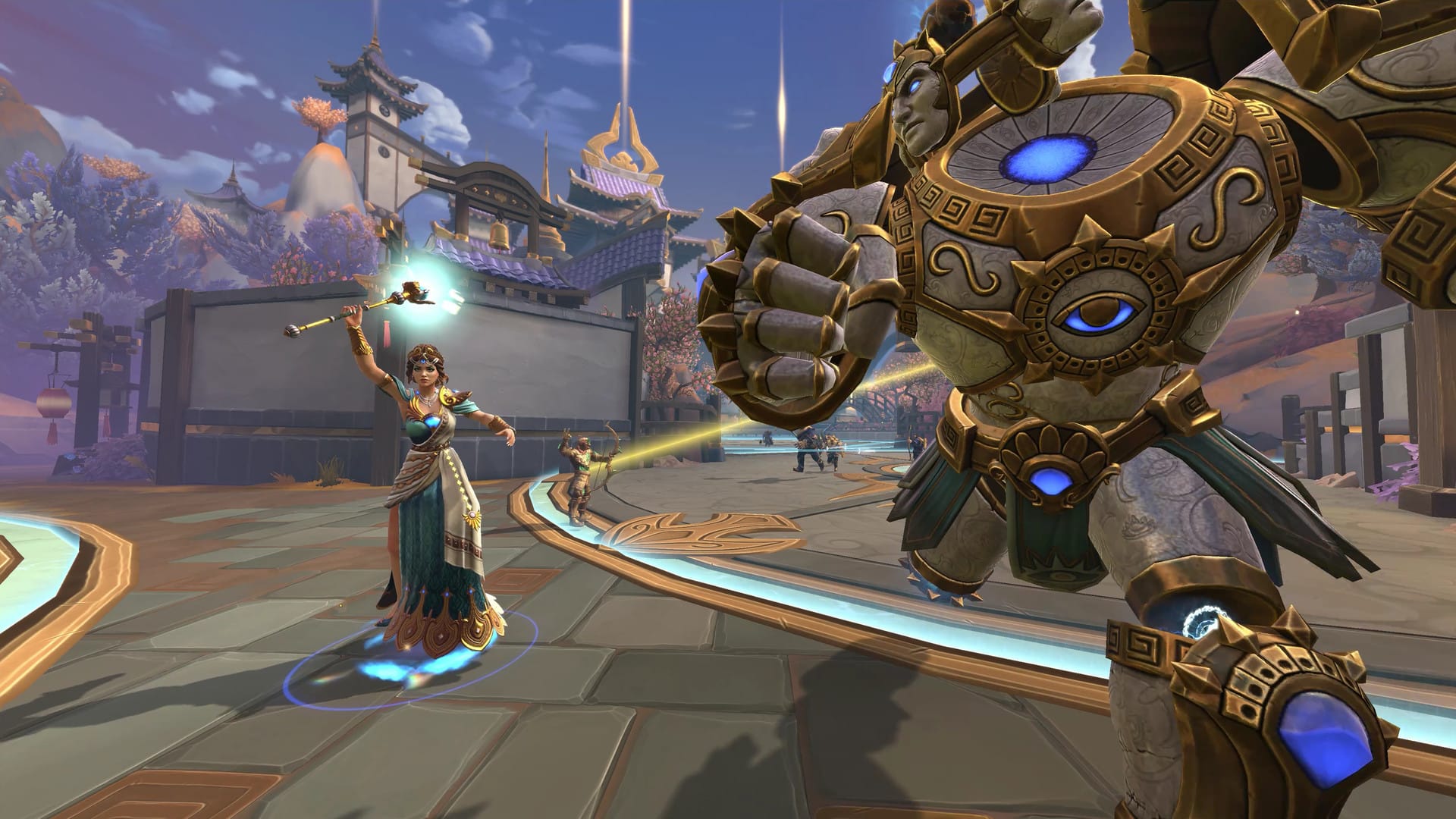
Recently, Smite has been generating quite a buzz with its modifications to the trio ranked queue system. These updates have sparked a lot of discussion within the player community. The new adjustments are designed to enhance the matchmaking process by restricting matches based on a balanced skill rating range of approximately 1,000 SR, considering the highest-ranked member in the trio. This move has triggered a wave of comments from players who are either thrilled, cautious, or even annoyed about the potential effects on their gaming sessions. As players delve into these updates, it’s interesting to observe a wide range of reactions as they ponder over the possible consequences for competitive play.
Summary
- The recent change to the ranked trio queue aims to ensure fair matchmaking by restricting offerings to players within a 1,000 skill rating range.
- Community response is mixed, with some players praising communication from the developers, while others express skepticism about the effectiveness of the matchmaking system.
- A number of players are experiencing frustrations with the current matchmaking that can lead to unbalanced teams, even with the new updates.
- There is a desire among the community for a solo queue option, as some feel that trios give too much advantage to teams over solo players.
Developer Communication: A Breath of Fresh Air
Developers like HiRezRabbit don’t usually communicate directly with players about changes, but he made an exception by explaining the reasons and consequences behind the trio queue alterations. A user named demo_wolf91 responded positively, praising HiRezRabbit for his openness: “I appreciate that you’re posting to discuss this and answering comments.” This move has sparked enthusiasm, demonstrating that open communication builds trust and involvement within the community. It seems players are happier when developers explain modifications instead of unveiling them like unexpected moves in a ranked game. Yet, there remains a measure of doubt among those who question whether the updates can truly live up to their promises.
Concerns About Balancing Act
The true test of team balance in competitive play is where opinions clash, and some question whether three-person teams, or trio queues, can maintain fairness. One player voiced their reservations, saying “I’ve always had my doubts about ranked trios being able to be fair from the start.” This concern highlights a valid issue: when players have different skill levels, larger teams could overpower others, leading to imbalances. If two-person teams can seem challenging, imagine three people strategizing together! It’s easy to understand why players might fear that changing the matchmaking system to accommodate trios could result in nights of frustration as teams grapple with coordinated opponents. There’s a risk that trios may become the new “supergroups” in ranked play, leading to either long wait times or unbalanced matches when the game’s player base doesn’t support fair competition.
The Mixed Bag of Matchmaking Results
Some gamers are hopeful about the advancements in the ranked mode, but others find it less enjoyable. For example, one player expressed frustration saying, “I don’t believe the matchmaking was improved. I keep getting matched with new players on my team, and it’s just not fun.” This comment underscores a major issue for many – the persistent dissatisfaction with the matchmaking system that frequently results in unevenly skilled teams. Even with recent updates, numerous players continue to struggle with the challenges of matchmaking that lead to mismatched team dynamics and less enjoyable gaming sessions.
The Call for Solo Queues
In many gaming communities, there’s a growing demand to revert back to solo queues, as some players feel that the current setup doesn’t offer enough advantages for individual performance. As one player put it, “Is it possible to have solo queue only again? It’s not enjoyable when you face off against a team in ranked.” This sentiment indicates a longing for a gaming environment that emphasizes individual play, reminiscent of the early days where players could succeed or fail based on their own skills rather than relying on team dynamics. While teams provide a sense of camaraderie, there’s an increasing preference for simpler, self-determined experiences that focus on skill and personal achievement over teamwork. This debate highlights the tension within the community between the allure of team play and the importance of individual skill being recognized.
With the recent trio queue updates in Smite, the gaming community has been deeply engaged in lively debates about its impact on their gaming experience. These updates have stirred a mix of admiration and doubt, underscoring the delicate balance between game equilibrium and player anticipations. Some players appreciate the developers’ transparent communication and actions, while others are cautious about whether these improvements will genuinely address their gameplay problems. It’s intriguing to observe how this community adapts to these alterations and whether future updates can alleviate ongoing annoyances or if the demand for solo queues grows louder in the development discourse. Regardless of what lies ahead for Smite’s ranked matchmaking, one fact remains certain: the dialogue is vibrant, and both players and developers are eagerly anticipating the game’s future evolution.
Read More
- Why Sona is the Most Misunderstood Champion in League of Legends
- House Of The Dead 2: Remake Gets Gruesome Trailer And Release Window
- SUI PREDICTION. SUI cryptocurrency
- “I’m a little irritated by him.” George Clooney criticized Quentin Tarantino after allegedly being insulted by him
- FIFA Team of the Year Voting: Fans Share Their Hot Takes!
- Square Enix Boss Would “Love” A Final Fantasy 7 Movie, But Don’t Get Your Hopes Up Just Yet
- Is Smite Community Bad? Users Weigh in on Circlejerking and Lying
- Level Up Fast in Enshrouded: Tips for Experience Farming at End Game
- Destiny 2: Is Slayer’s Fang Just Another Exotic to Collect Dust?
- ‘Wicked’ Gets Digital Release Date, With Three Hours of Bonus Content Including Singalong Version
2025-01-25 04:13